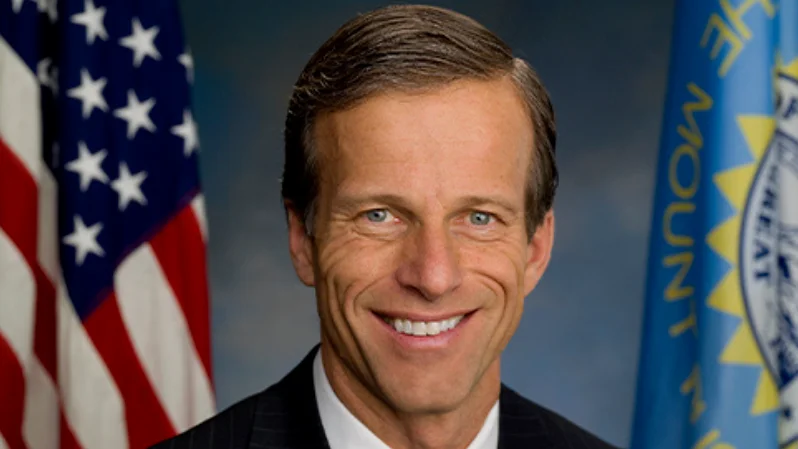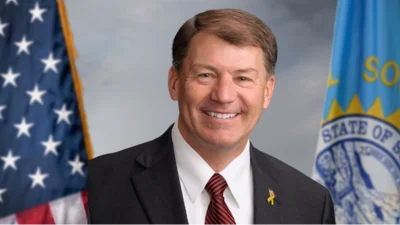Senator John Thune, US Senator for South Dakota | Official U.S. Senate headshot
Senator John Thune, US Senator for South Dakota | Official U.S. Senate headshot
U.S. Senate Majority Leader John Thune (R-S.D.) addressed the Senate, emphasizing the Republican-led effort to advance legislation that he said fulfills commitments made during the previous election cycle.
Thune stated, "Mr. President, last November the American people elected President Trump and a Republican Congress with a clear mandate." He outlined several key provisions of the proposed bill, focusing on making permanent the tax cuts introduced in 2017. These include lower rates for all income brackets, an increased child tax credit set at $2,200 per child and indexed to inflation, and maintenance of a higher standard deduction used by most taxpayers.
He warned that without congressional action, these policies would expire at year’s end, leading to higher taxes for families across the country. Thune noted that South Dakotans could see average increases of $2,500 if changes are not enacted.
Additional measures in the bill target seniors with an even higher standard deduction and provide tax relief for tipped and hourly workers by eliminating taxes on tips and overtime pay.
The legislation also aims to support economic growth by making permanent certain deductions for small businesses and allowing full expensing for new equipment, domestic research and development projects, factories, and factory improvements. Thune said this would encourage more manufacturing within the United States.
A provision raising the threshold for estate taxes is intended to benefit family farms and small businesses. The bill also introduces new investment accounts accessible upon adulthood for purposes such as education or starting a business.
Thune highlighted agricultural components designed to address recent challenges faced by farmers and ranchers. These include increased reference prices for commodities, improved crop insurance coverage—especially for new farmers—and continued support for risk management and conservation programs.
On national security issues, Thune described investments aimed at strengthening U.S. borders through additional technology and personnel as well as completing construction of a border wall. He credited prior efforts under President Trump but stressed further resources were needed.
Military readiness features prominently in the bill through funding for shipbuilding, missile defense upgrades—including what he called a “new Golden Dome”—and revitalization of domestic defense manufacturing capacity.
Energy security is another priority addressed in the legislation. According to Thune, responsible expansion of domestic energy production is crucial to maintaining independence from unstable foreign sources.
Finally, Thune pointed out provisions meant to reduce government spending through measures targeting wasteful practices while implementing what he described as “the largest spending cut in American history.” He asserted these reforms could help reduce the federal deficit by up to $6 trillion without raising taxes but instead relying on economic growth.
“Mr. President, this bill delivers on the mandate the American people gave Republicans last year,” Thune concluded. “A stronger America. A safer America. And a more prosperous America.”




 Alerts Sign-up
Alerts Sign-up